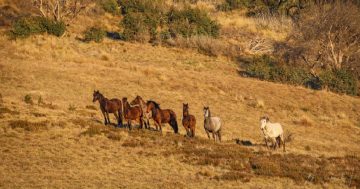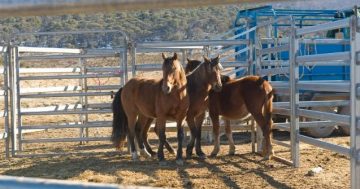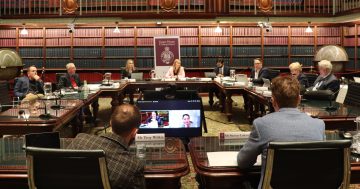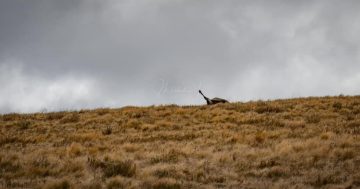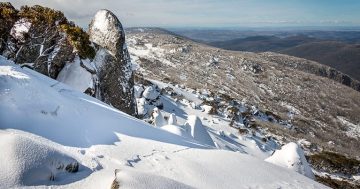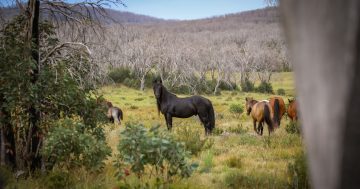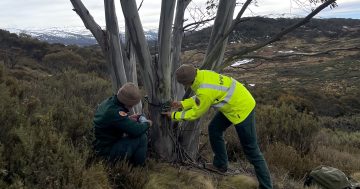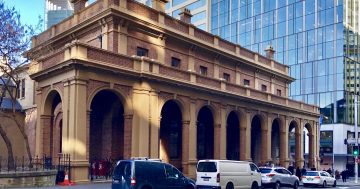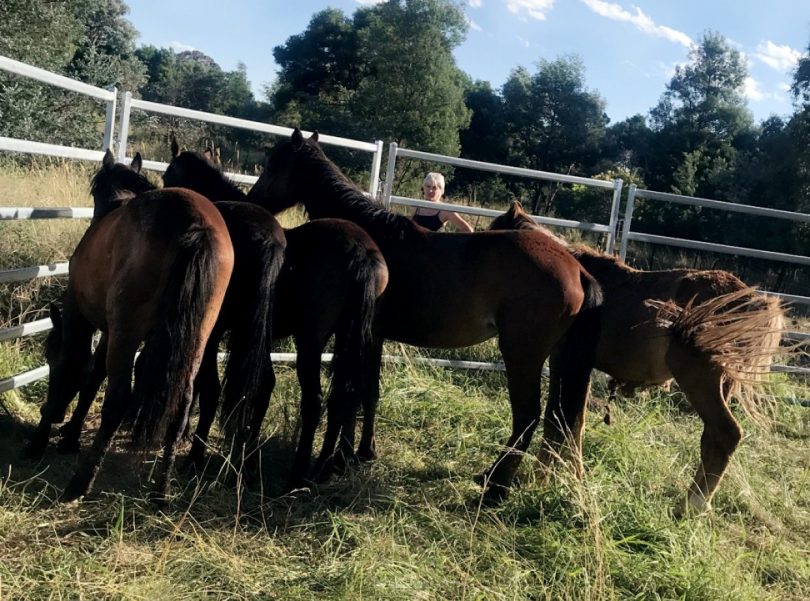
The brumbies rehomed by Caroline Hamad and her cousins are now on acreage at Tallong. Photo: Supplied.
A family from the Goulburn Mulwaree local government area, which has been rehoming brumbies from Kosciuszko National Park in the Snowy Mountains, says the NSW Government should implement an incentive for others to do the same.
Caroline Hamad and her cousins recently rehomed five brumbies to their farm in Tallong and are working with about 12 other Goulburn Mulwaree residents to rehome more.
Anyone can be a rehomer as long as they have adequate food, water, shelter, care and an appropriate facility, and ensure the horses are never returned to publicly managed lands.
Unlike some rehomers who train the brumbies to be ridden or sold as children’s ponies, Caroline and her cousins will let their five brumbies roam free on acreage.
“We want to give them the freedom they had living in the bush, rather than riding them,” says Caroline. “Although it’s not the same, of course. They aren’t used to houses being nearby.”
While the family is happy to take the brumbies into their care in the knowledge they’ll be saved from a knackery, they feel frustrated by the cost to rehomers.
They had to pay $130 per horse to a handler, the transport cost of moving the horses from Blowering in the Snowy Mountains to Goulburn, which are 270km apart, plus food and water.
A handler is responsible for taking the horses from the NSW National Parks and Wildlife Service (NPWS) and taking care of them until they are rehomed. While this gives rehomers more time to collect the horses, handlers can charge as much as they like.
Rehomers can also apply to obtain the horses directly from NPWS, however there is a smaller window to collect them, says Caroline.
NPWS has also been offering a $1500 incentive to rehomers, but only during COVID-19 and to those who need to transport the brumbies across a state border.
The NSW Department of Planning, Industry and Environment says the need to remove the horses is based on strong scientific evidence that shows the introduced animals damage the park’s fragile alpine and sub-alpine environment, including trampling ecosystems, eroding waterways and destroying key habitat for threatened species.
The department also says its priority is to rehome the horses removed from the park, however those that aren’t rehomed are sent to a knackery.
Between October 2020 and January 2021, 343 horses were passively trapped and removed, with 95 per cent of those rehomed, the department told Region Media.
A spring 2020 population survey estimates there are more than 14,000 brumbies across Kosciuszko National Park, which NSW Deputy Premier John Barilaro says is too high. He says a sustainable number is around 3000 to 4000.
Many brumby advocates believe there are far fewer than 14,000 brumbies in the park, and that removing the wild horses isn’t the answer.
Caroline and her cousins are advocates of immunocontraceptive vaccines to control brumby numbers, and have been petitioning for brumbies to be left in the park, where they are used to living.
“That’s the method we think is most humane,” she says. “These horses are amazing. The ones we took to Goulburn took a few days to leave our holding yard because they were frightened and scared, but they’re harmless – they just sit there and graze.”
To find out more about rehoming brumbies, or to contact a handler, click here.







